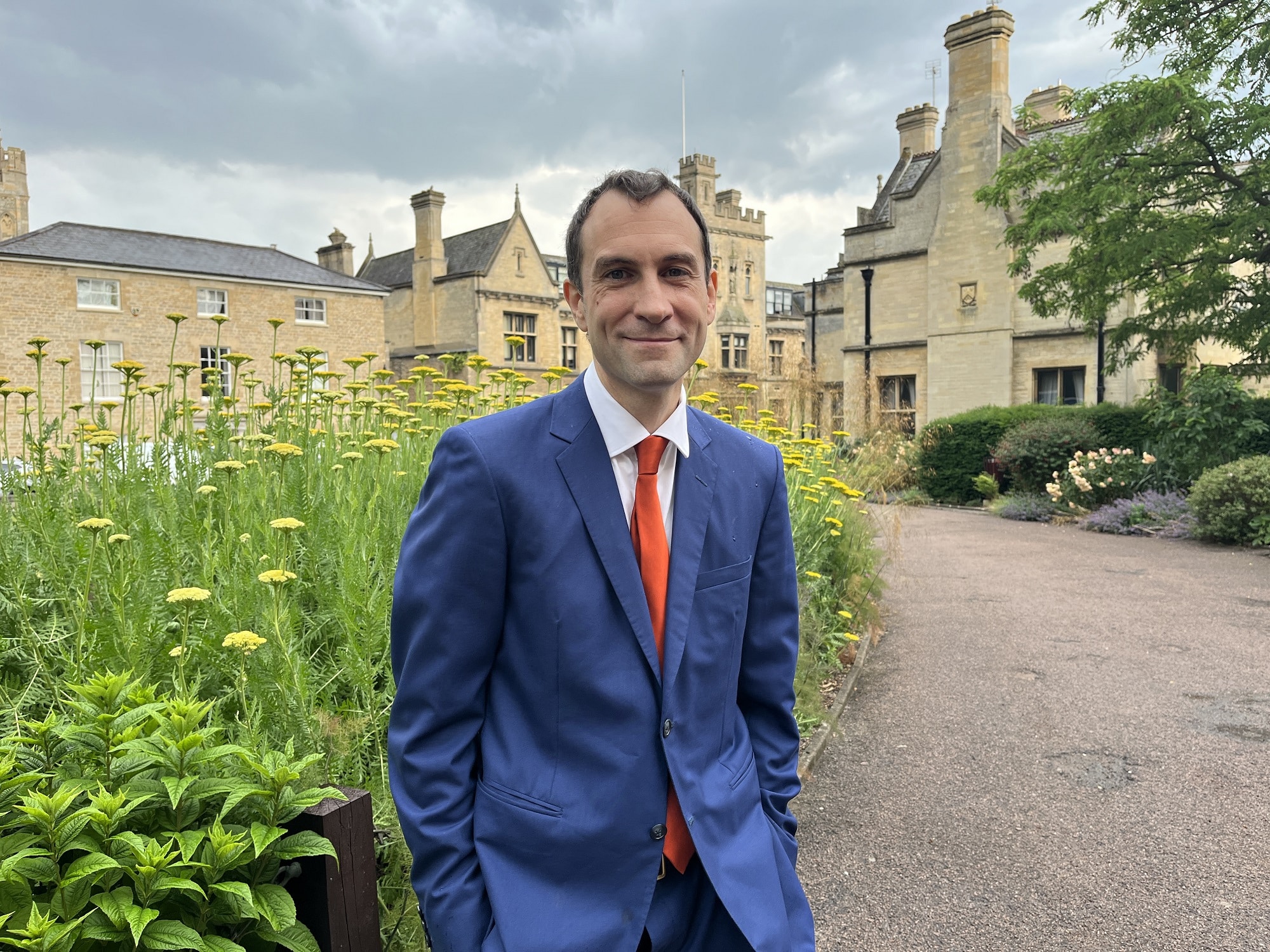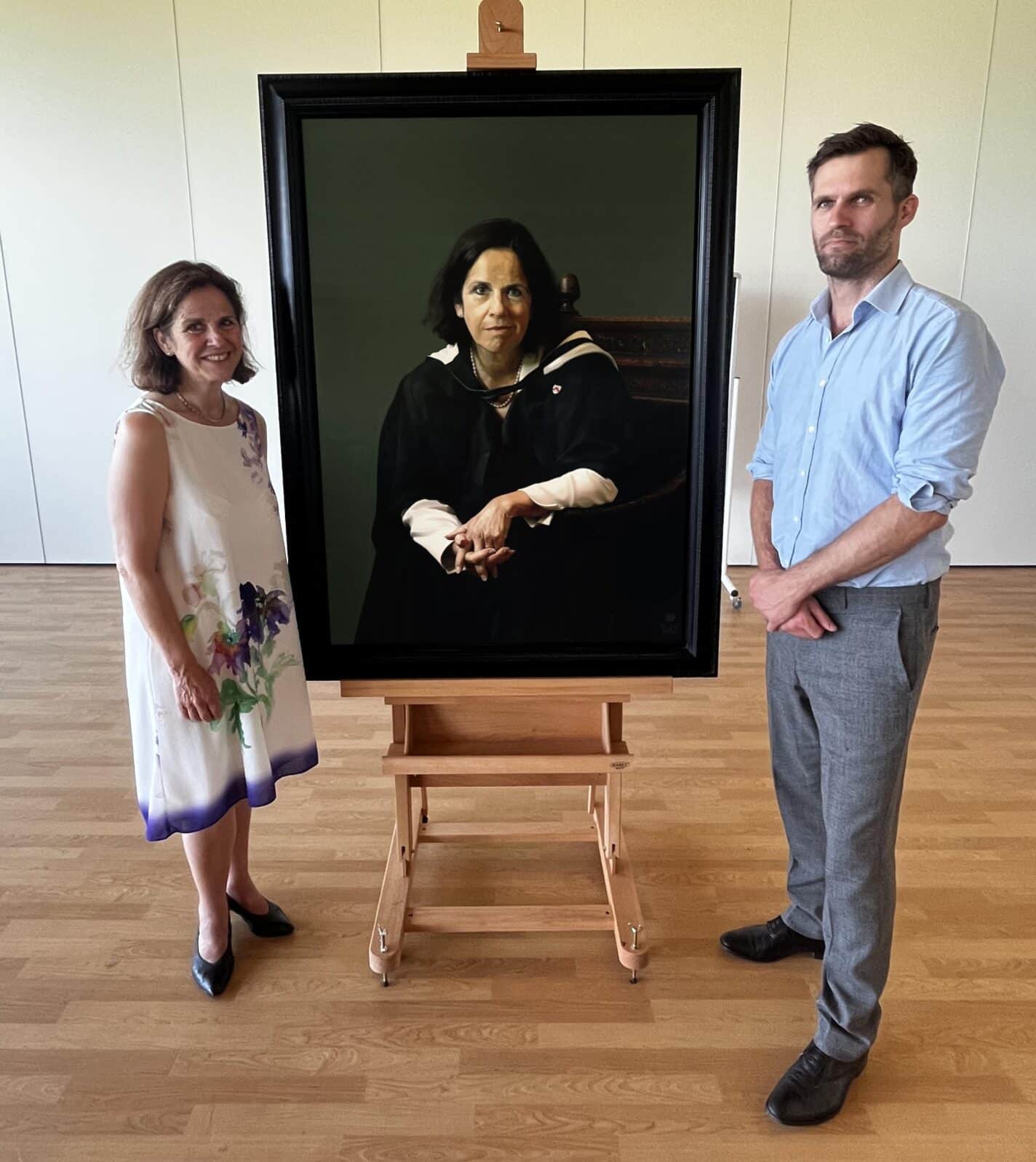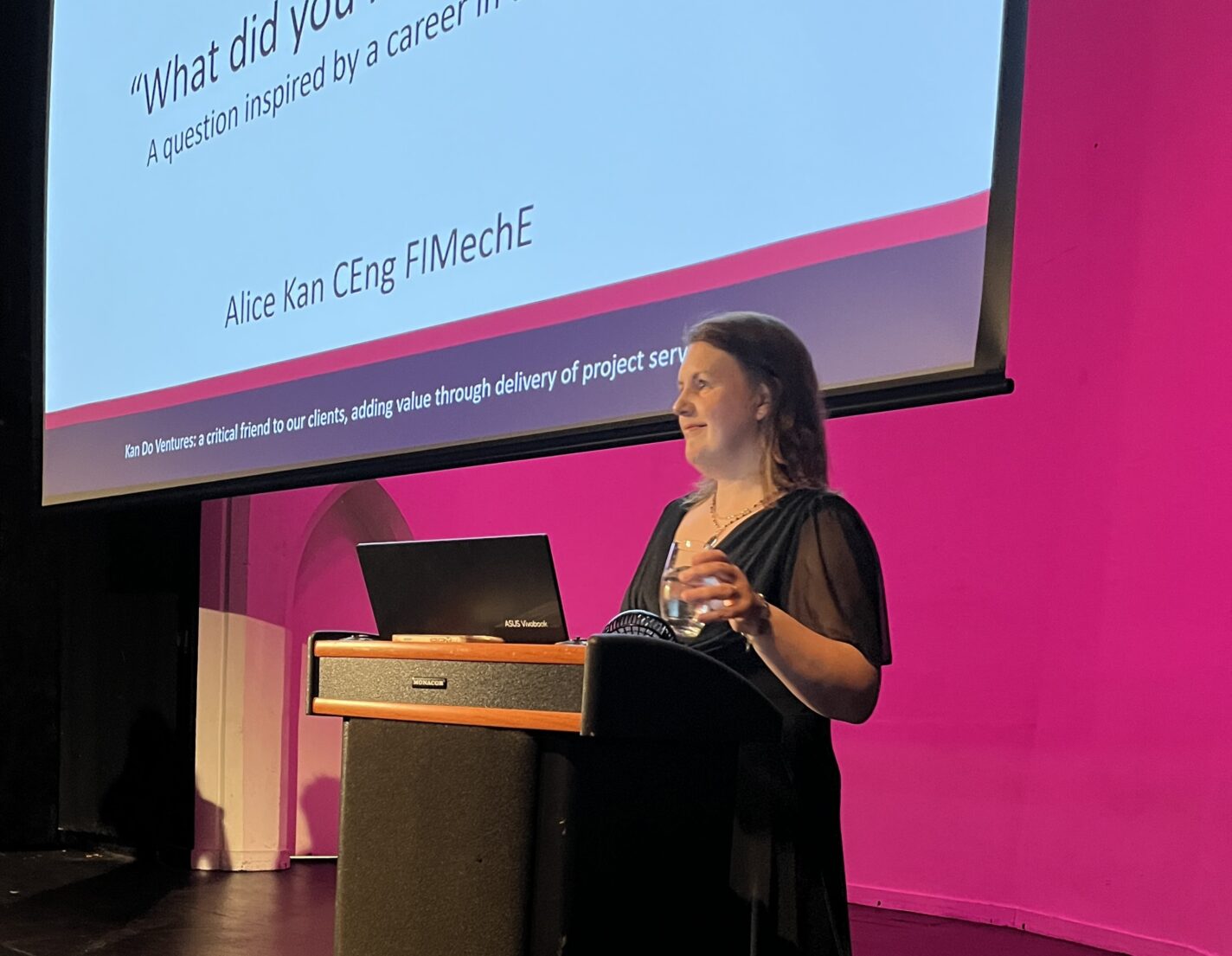This year’s Oundle lecture was delivered by Rufus Pollock (LS 98). After Oundle School, Rufus had a stellar academic career at the University of Cambridge with a double first in mathematics, leading to a PhD in Economics, followed by fellowships and government appointments. But he did not come back to Oundle to encourage pupils to follow a similar trajectory of traditional success. He dismissed the established accolades that usually form the introductions to his work and career as “human-doings”, and contrary to expectations, he encouraged pupils to question and even reject the traditional university and career-driven plans that have been charted for them.
He began with painful stories about his own time at school. He described a desperate nihilistic period in which he felt the “magic had gone out of the world”. He asked what he would say to himself as an unhappy 16-year-old with many questions about the purpose of life, and with very few answers.
Rufus did not refer to formal religious practice, but he described a “Second Renaissance” in which an accessible form of Buddhist teachings, including meditation, can be adopted in our western lives, alongside modern science, to understand our consciousness.
He mentioned the notion of the “matrix”, popularised in science fiction and film. He said it is a serious mental construct that forms a narrow, restricted understanding about the world and emphasised that asking questions beyond the matrix is the way to find transcendence beyond the normal.
He pointed to the French philosopher Blaise Pascal, who said: “All of humanity’s problems stem from man’s inability to sit quietly in a room alone.” Rufus suggested that our minds are constantly grappling with dissatisfaction, wanting something else, worrying about ourselves and others. He encouraged pupils to just take the time to sit still and “flip the switch”; to reach deep down and realise that fundamentally, “things are OK”.
Simply, Rufus exhorted pupils to “wake up”; release themselves from self-made limitations, let go of negative feelings and thoughts to find the innate capacity for loving and happiness.





